13 GPTs for Wine Exploration Powered by AI for Free of 2026
AI GPTs for Wine Exploration are advanced computational tools designed to enhance the wine discovery process. Utilizing Generative Pre-trained Transformers (GPTs), these AI tools provide tailored solutions for a wide range of tasks related to wine, from recommendations and pairing suggestions to detailed information about wine varieties, regions, and production methods. By leveraging natural language processing and machine learning, GPTs offer personalized and insightful guidance, making wine exploration more accessible and informative.
Top 10 GPTs for Wine Exploration are: WineSom,Wine With Food | Best Wine & Food Parings for You,Nogz Vino,Vino Virtuoso,Secret Somm,Sommelier Pro,Wine GPTasting,Your Sommelier,Wine Guru,Wine Education
WineSom
Your AI-Powered Sommelier
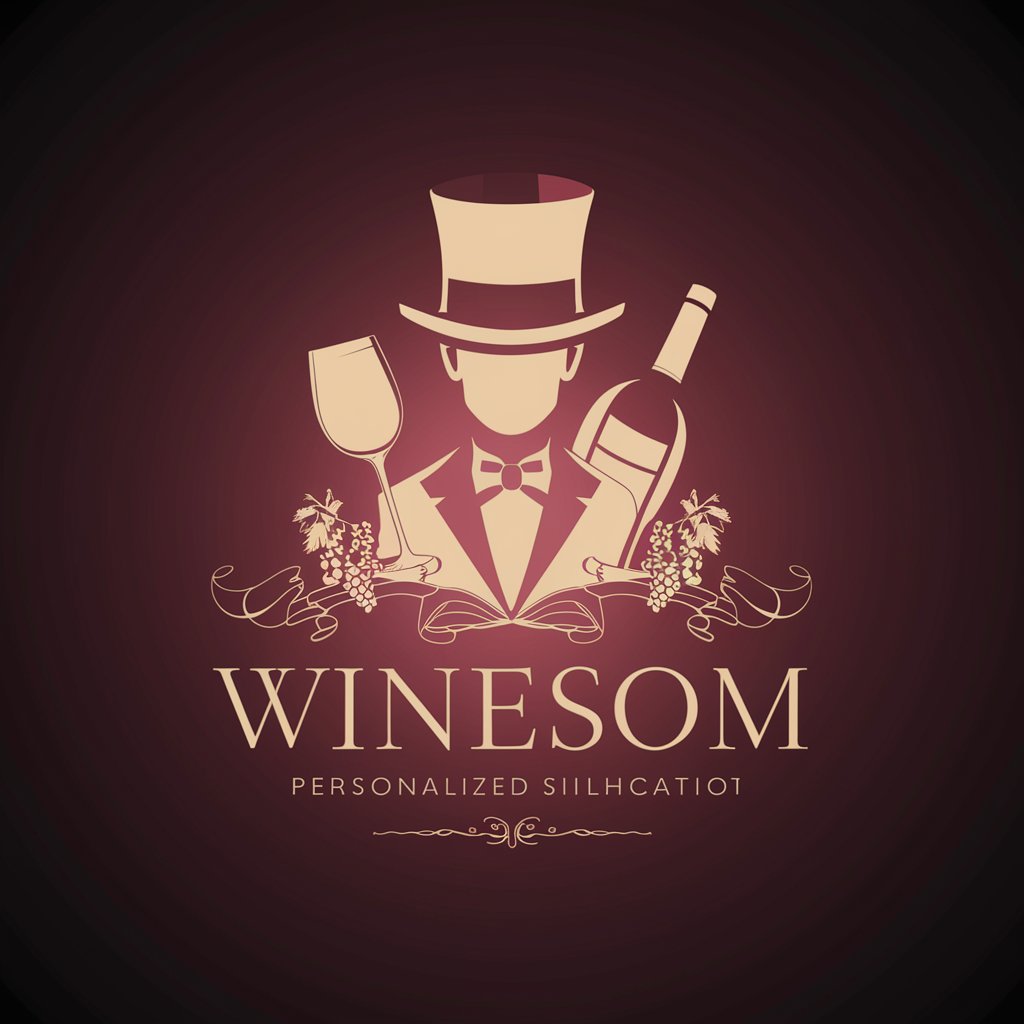
Wine With Food | Best Wine & Food Parings for You
Your AI-Powered Sommelier
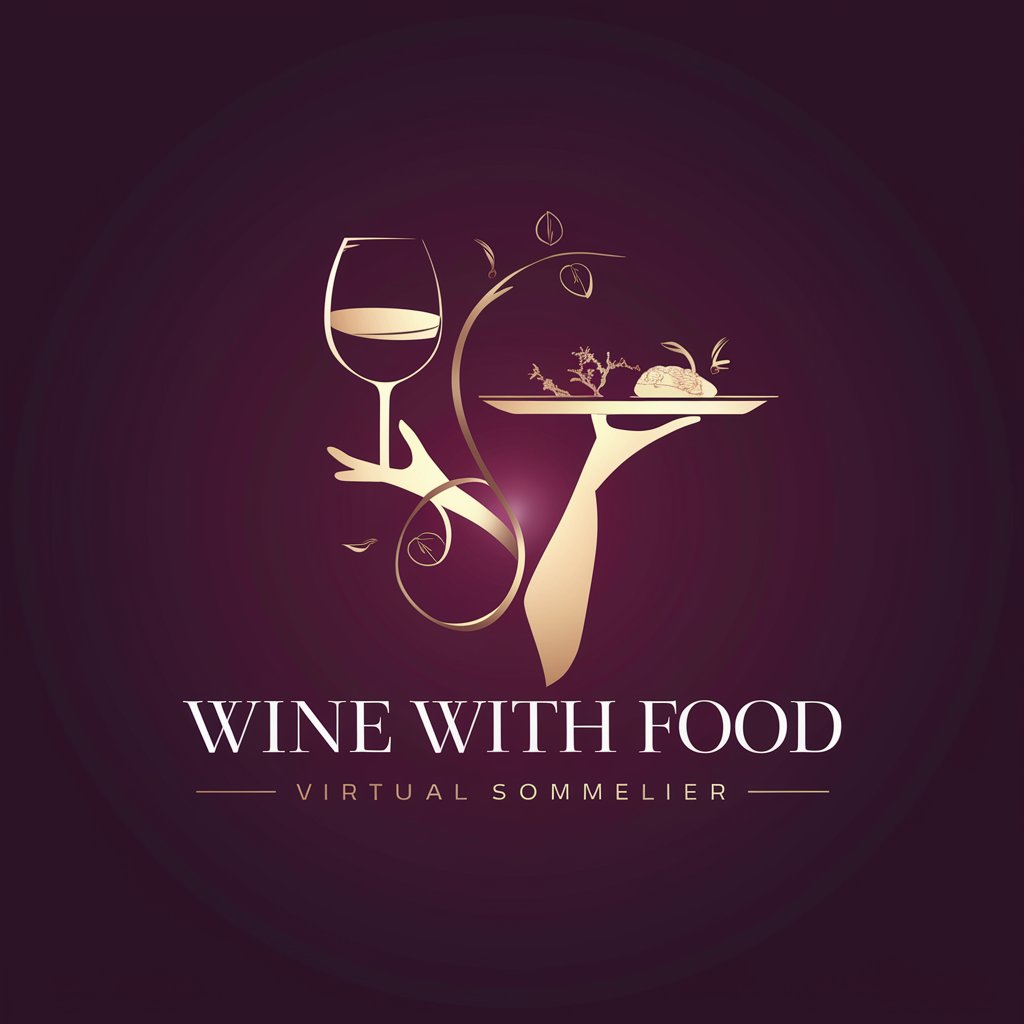
Nogz Vino
Sip, Discover, and Visualize with AI

Vino Virtuoso
Empowering Your Wine Journey with AI
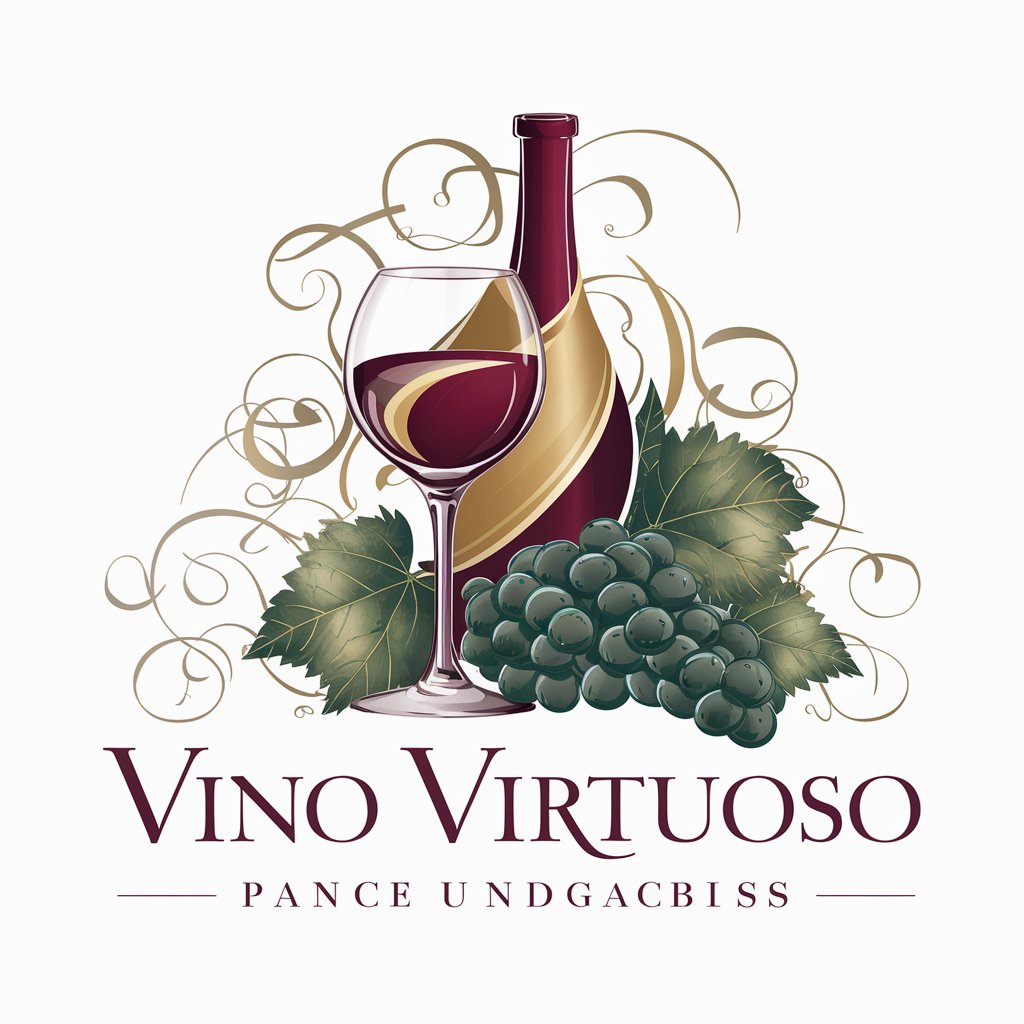
Secret Somm
Discover wines you'll love, powered by AI

Sommelier Pro
AI-powered Personal Wine Advisor
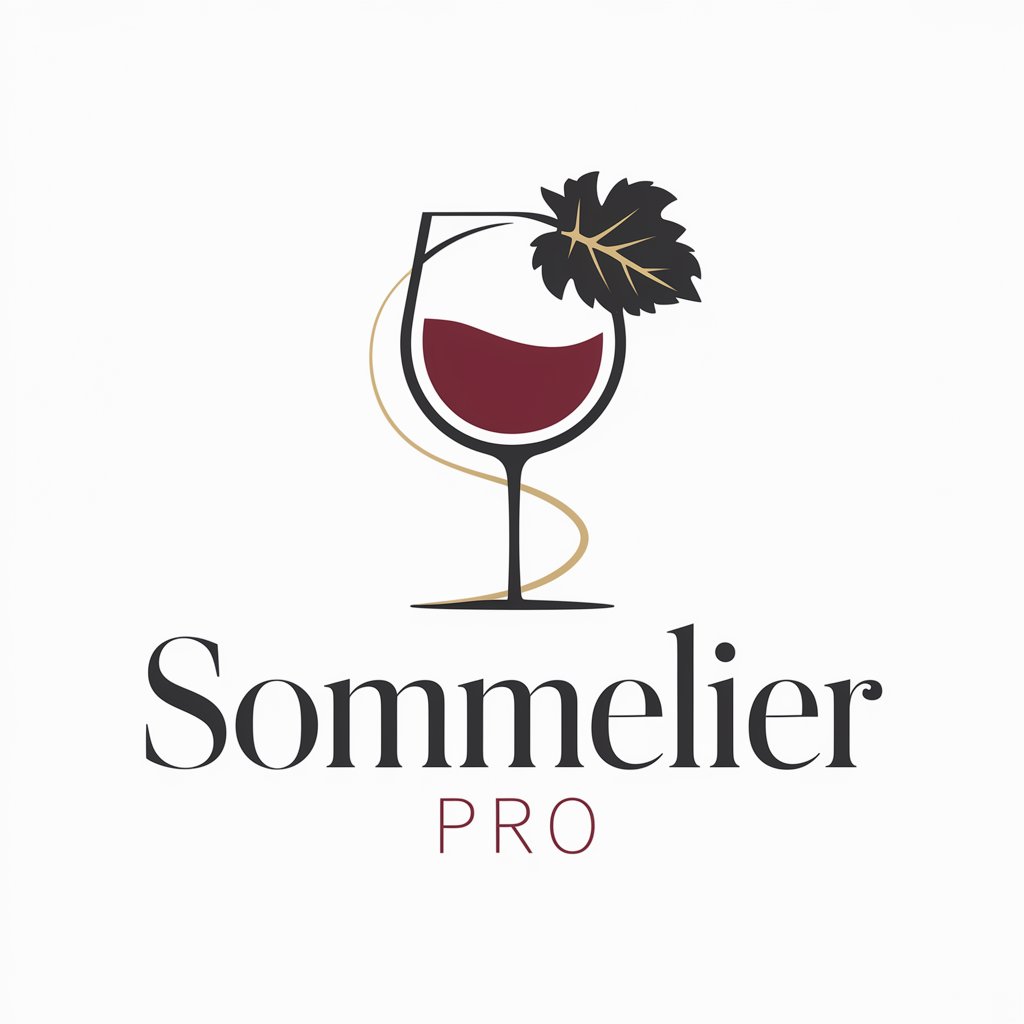
Wine GPTasting
AI-Powered Wine Insights at Your Fingertips
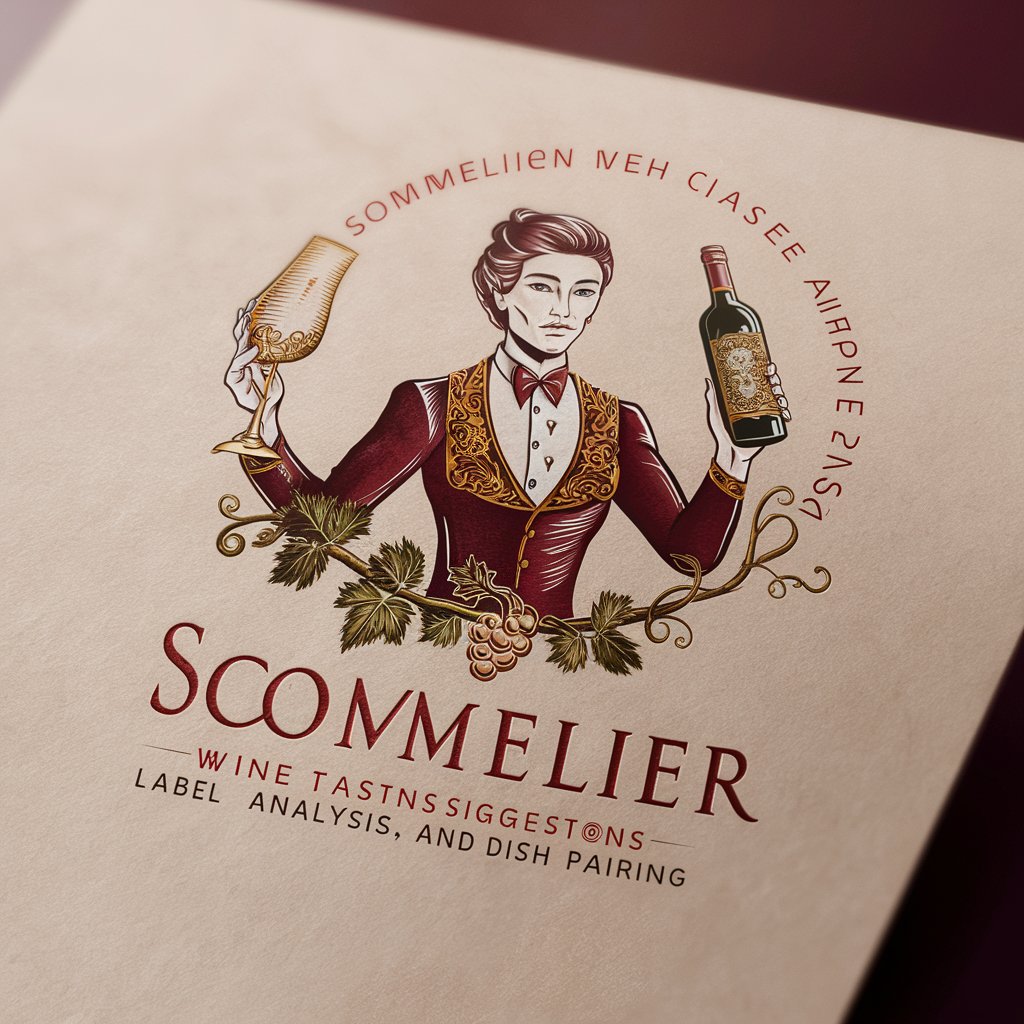
Your Sommelier
Elevate Your Wine Experience with AI

Wine Guru
AI-driven, personalised wine advice
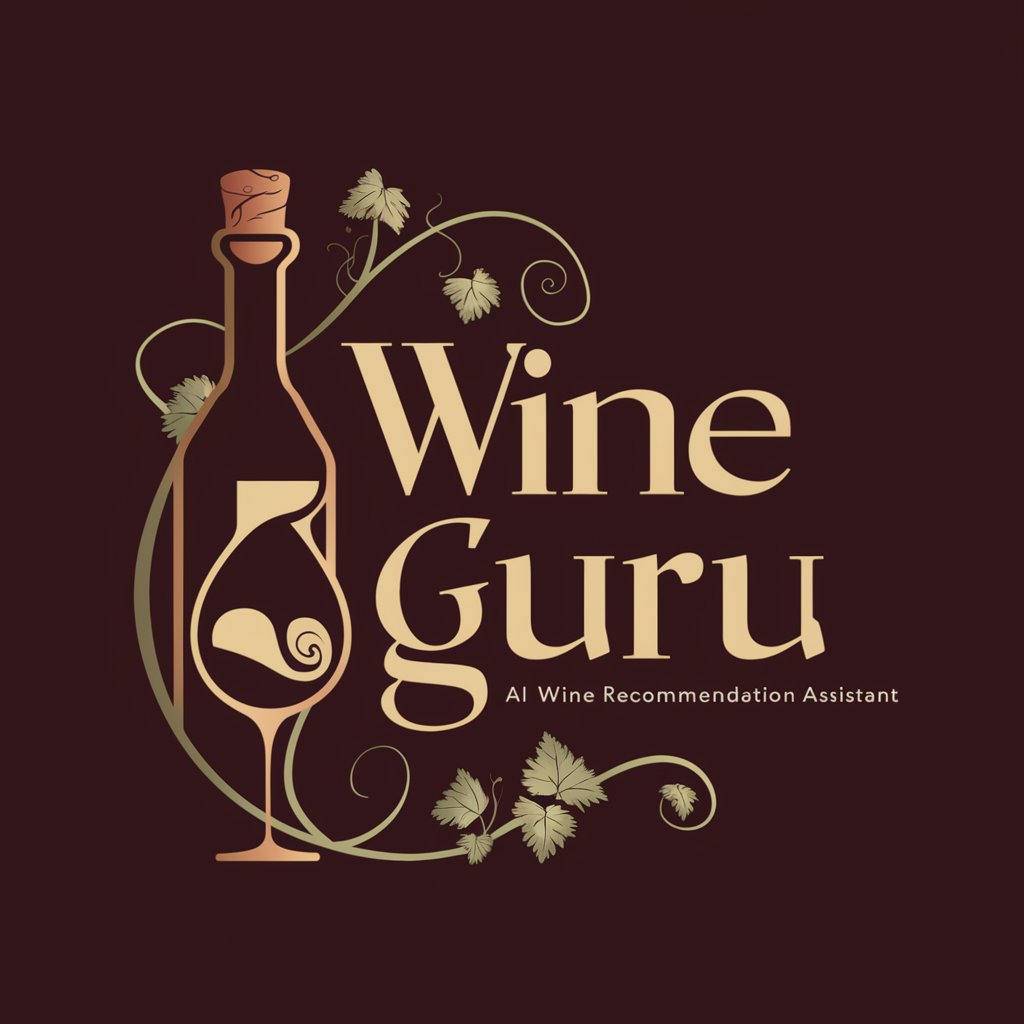
Wine Education
AI-driven Insights into Wine Mastery
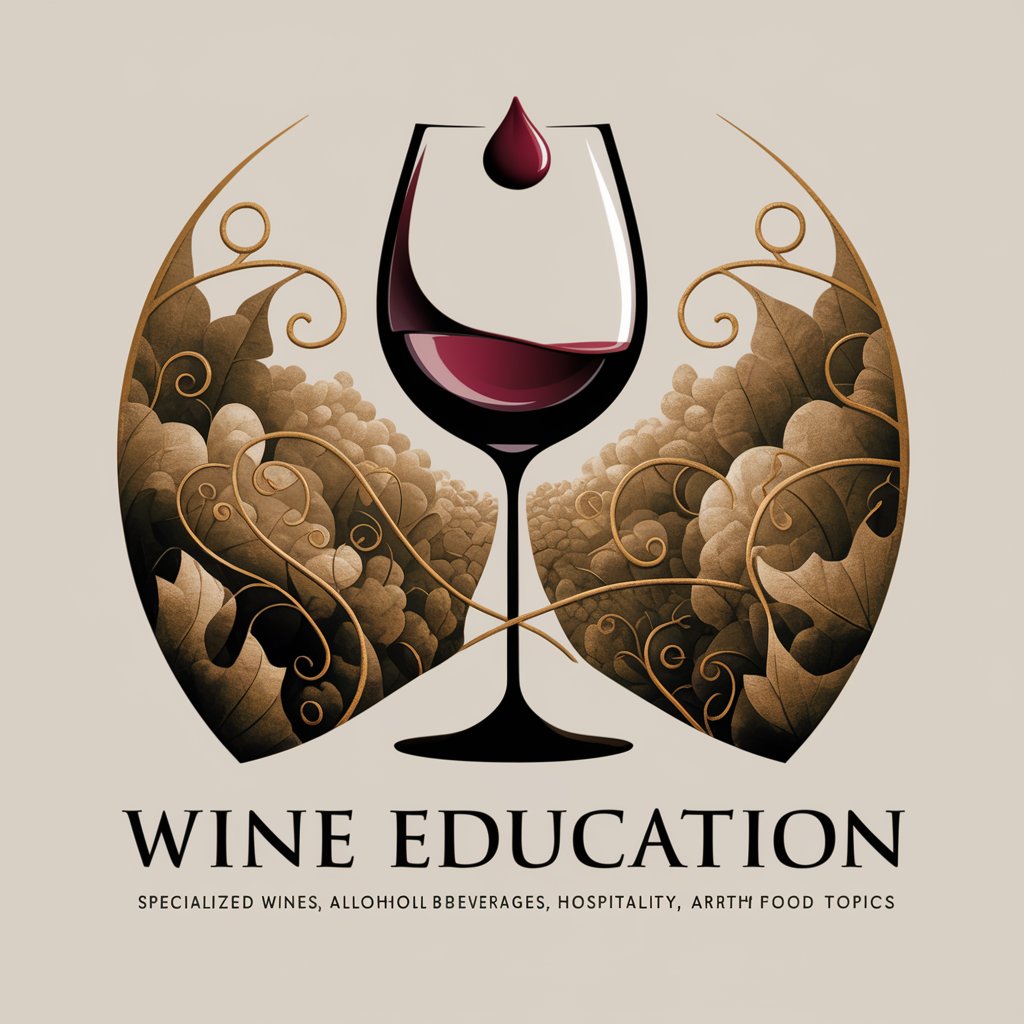
Wine Whisperer
Expert sommelier advice, powered by AI
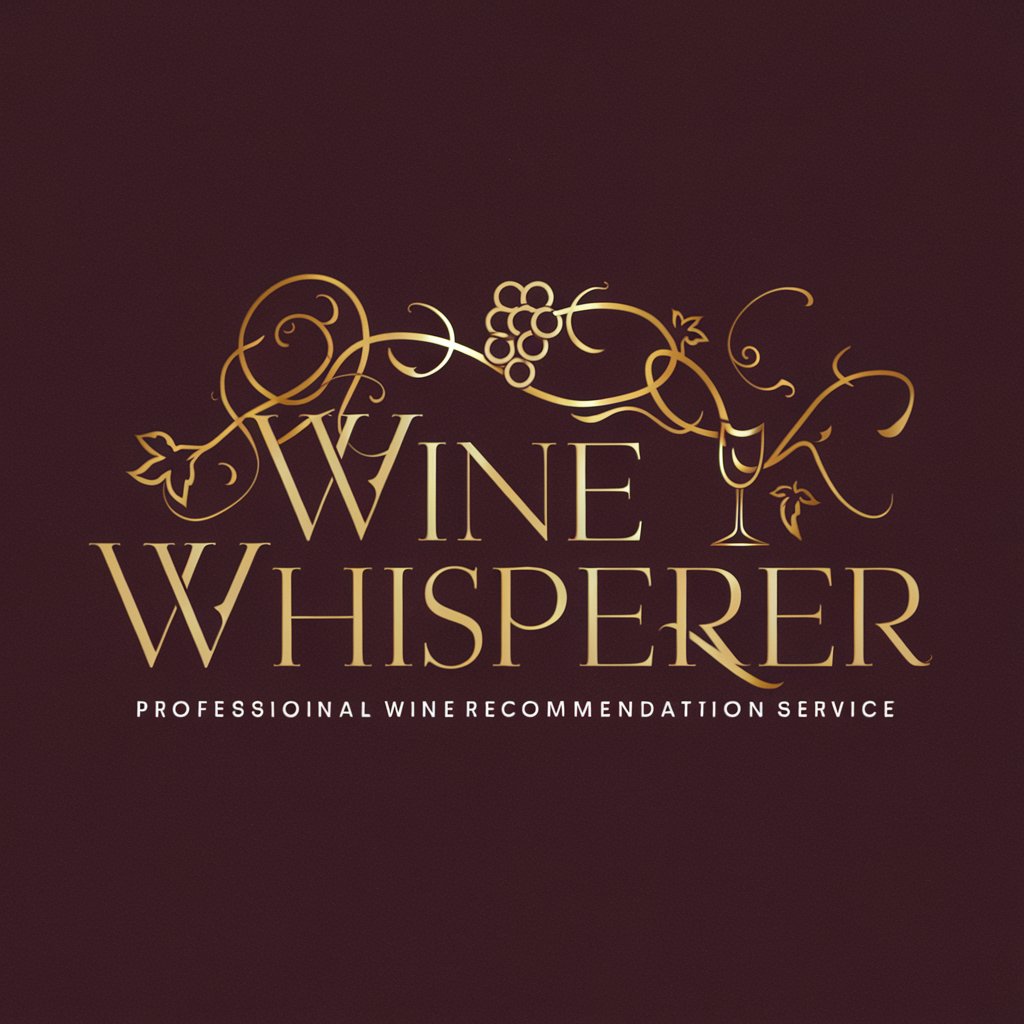
Wine GPT
Perfect Pairings at Your Fingertips
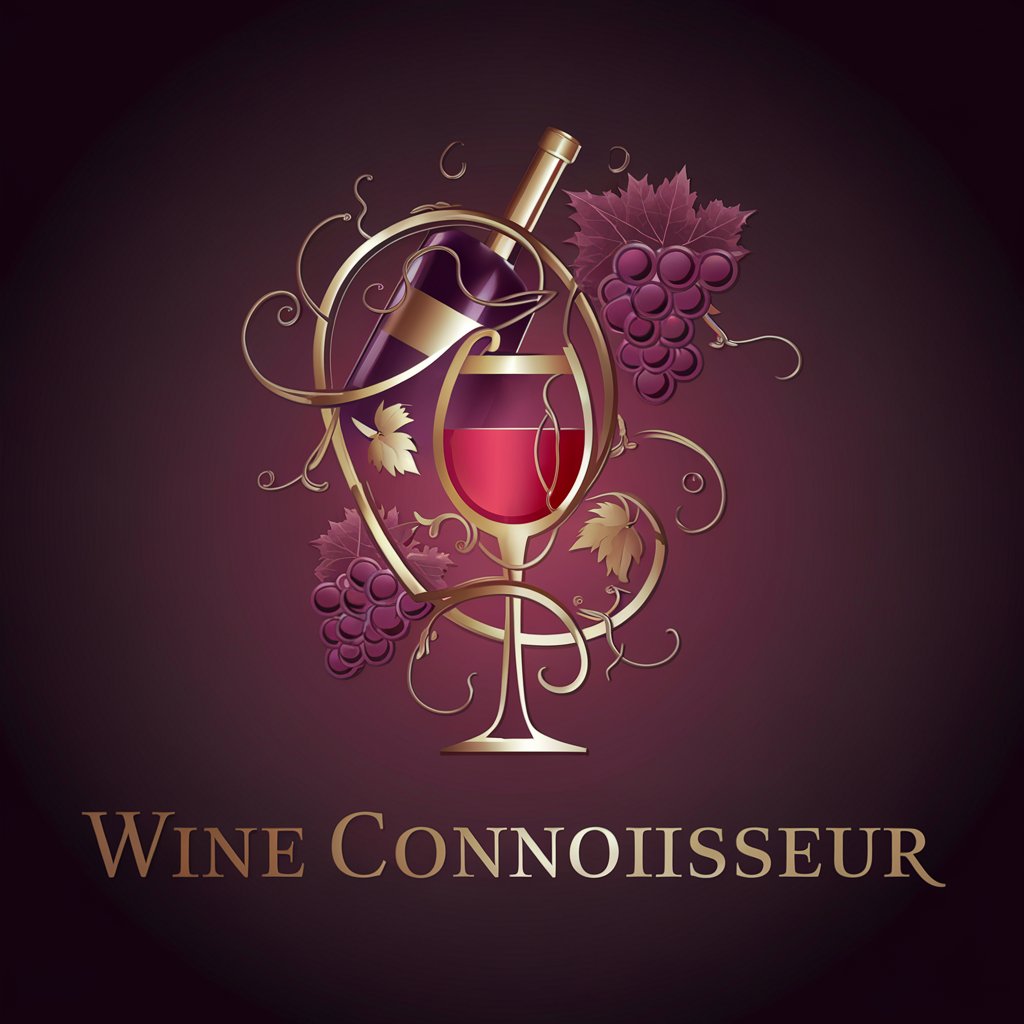
WineGPT
Your Personal AI-Powered Sommelier
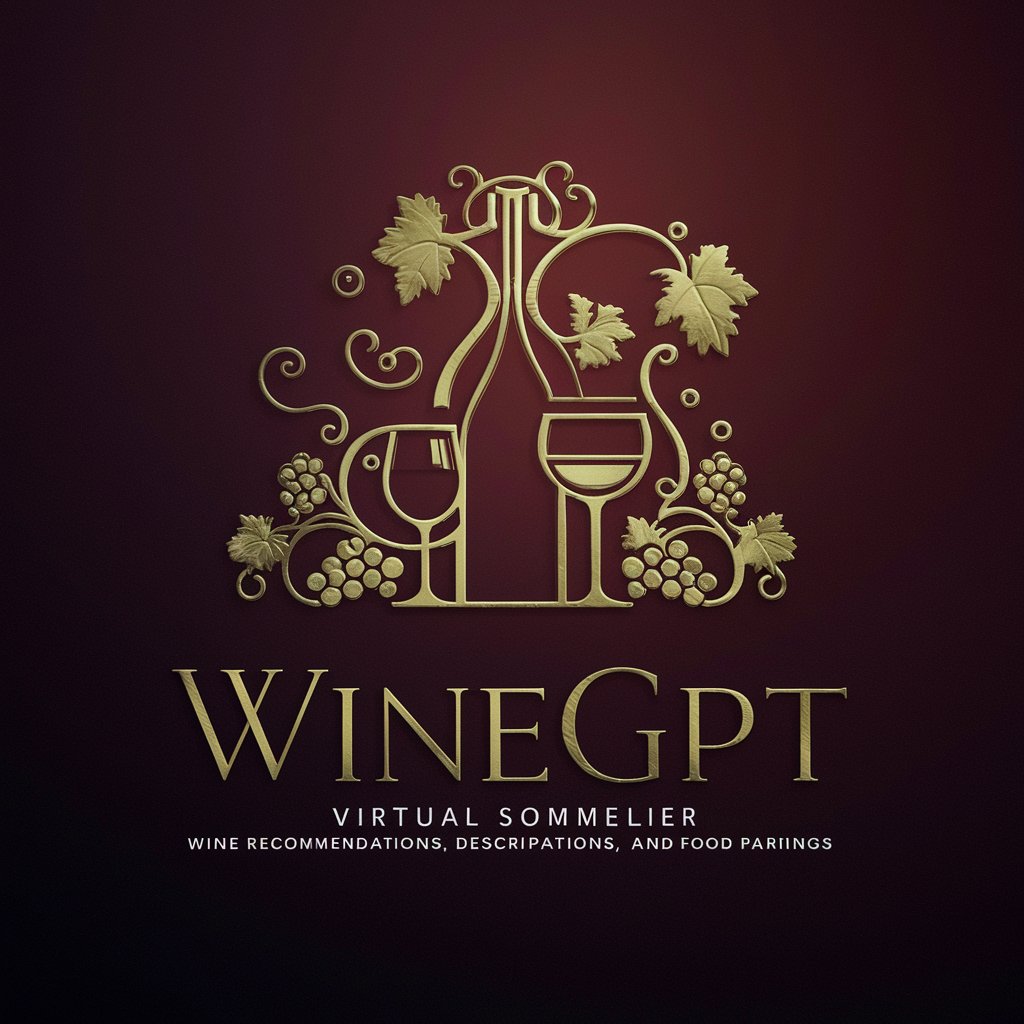
Essential Qualities of Wine Exploration GPTs
These AI tools stand out for their adaptability, capable of performing from basic to complex functions within the wine domain. Key features include sophisticated language understanding for natural interaction, technical support for wine-related queries, enhanced web searching capabilities for up-to-date information, image creation for visualizing wine labels or regions, and data analysis to uncover trends or patterns in wine preferences. These capabilities ensure a comprehensive and enriched wine exploration experience.
Who Benefits from Wine Discovery AI?
AI GPTs for Wine Exploration cater to a diverse audience, including wine novices seeking to learn, developers aiming to create wine-focused applications, and professionals in the wine industry looking for advanced analytical tools. These AI tools are designed to be user-friendly for those without programming skills, while offering extensive customization options for those with technical expertise, making them accessible and beneficial for a wide range of users.
Try Our other AI GPTs tools for Free
Tea Insights
Explore the world of tea with AI GPTs for Tea Insights. Discover brewing tips, health benefits, market trends, and more through advanced AI technology.
German Study
Explore how AI GPTs for German Study transform language learning and professional applications with adaptive, tech-savvy tools tailored for all proficiency levels.
Social Icons
Explore AI-powered tools designed for Social Icons, enhancing engagement through tailored content, strategic insights, and adaptive functionalities.
Gas Consulting
Discover how AI GPTs for Gas Consulting are transforming the industry with tailored solutions, advanced analytics, and user-friendly interfaces for professionals and novices alike.
Solidity Aid
Discover how AI GPTs for Solidity Aid can transform your blockchain development process with advanced code generation, error detection, and tailored learning resources. Ideal for both beginners and experts.
Ethnic Discovery
Explore AI GPTs for Ethnic Discovery, advanced tools designed for analyzing ethnic diversity and cultural insights, ideal for researchers and policymakers.
Expanding Horizons with AI in Wine Exploration
The integration of GPTs in the wine domain signifies a leap towards more interactive and personalized wine discovery. With user-friendly interfaces, these tools not only simplify wine selection and education but also open up new possibilities for integrating AI with existing systems or workflows, providing a seamless and enriched experience for all users.
Frequently Asked Questions
What exactly are AI GPTs for Wine Exploration?
AI GPTs for Wine Exploration are specialized AI models that assist users in discovering and learning about wines through natural language interactions, providing personalized recommendations, insights, and information.
How do these tools enhance the wine learning experience?
By leveraging advanced AI to understand and process natural language queries, these tools offer personalized guidance, making learning about wine varieties, regions, and pairings both informative and engaging.
Can beginners use these AI tools effectively?
Yes, these tools are designed with user-friendly interfaces that make them accessible to beginners, providing a supportive and educational platform for wine exploration.
Are there customization options for developers?
Absolutely. Developers can access APIs and programming interfaces to tailor the AI's functionality, integrating it with custom applications or enhancing its capabilities for specialized tasks.
What makes these GPTs unique in the wine domain?
Their ability to process and understand complex wine-related queries in natural language sets them apart, offering a level of interaction and personalization that traditional wine exploration tools cannot match.
How can professionals in the wine industry benefit?
Professionals can leverage these AI tools for in-depth analysis of market trends, consumer preferences, and detailed wine characteristics, aiding in decision-making and strategy formulation.
Do these tools require internet access?
Yes, internet access is typically required to utilize the full range of features, including real-time information updates and access to extensive wine databases.
Can these AI models generate wine reviews?
Yes, by analyzing existing data and user preferences, these models can generate informative and personalized wine reviews, enhancing the exploration experience.